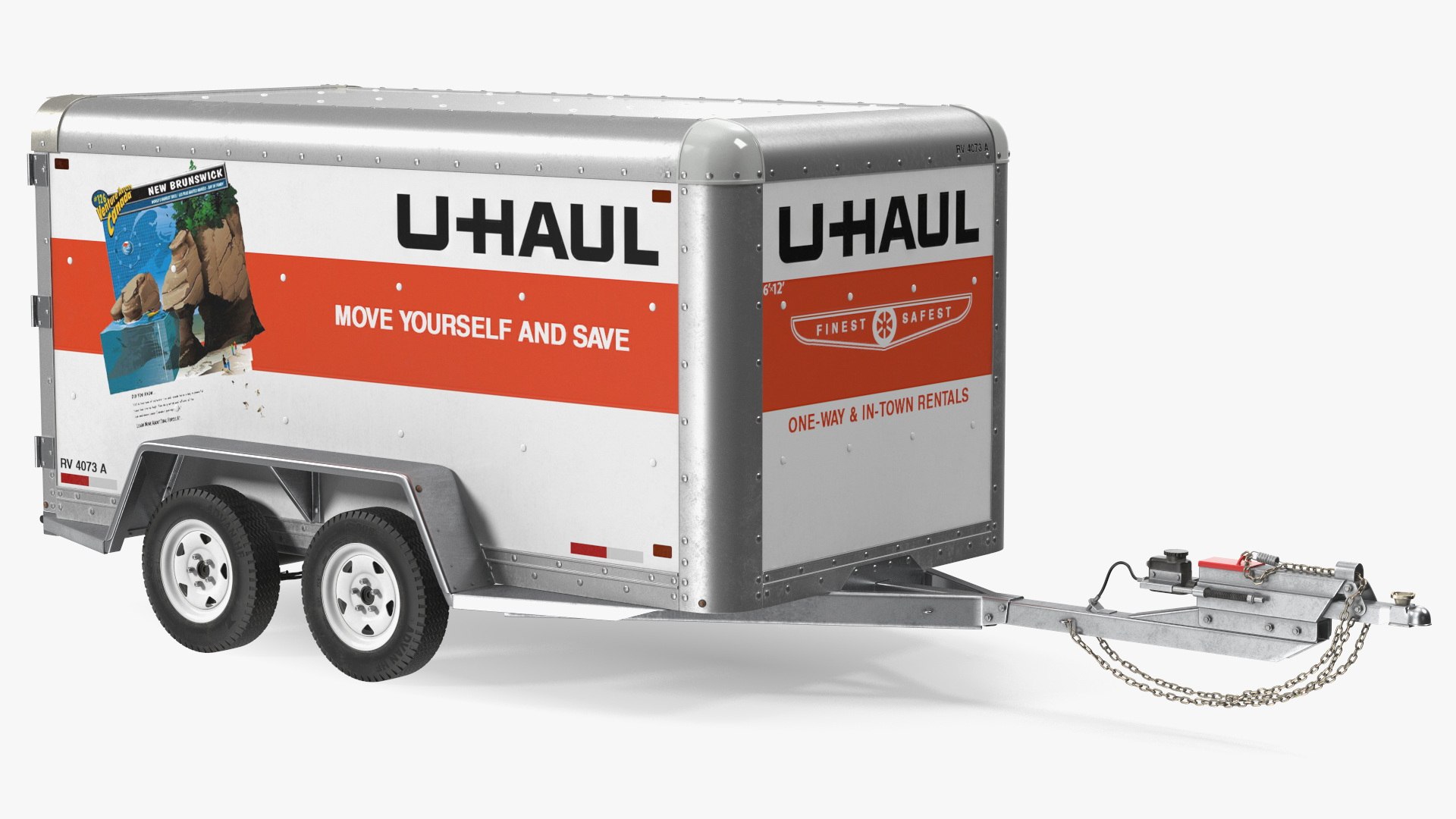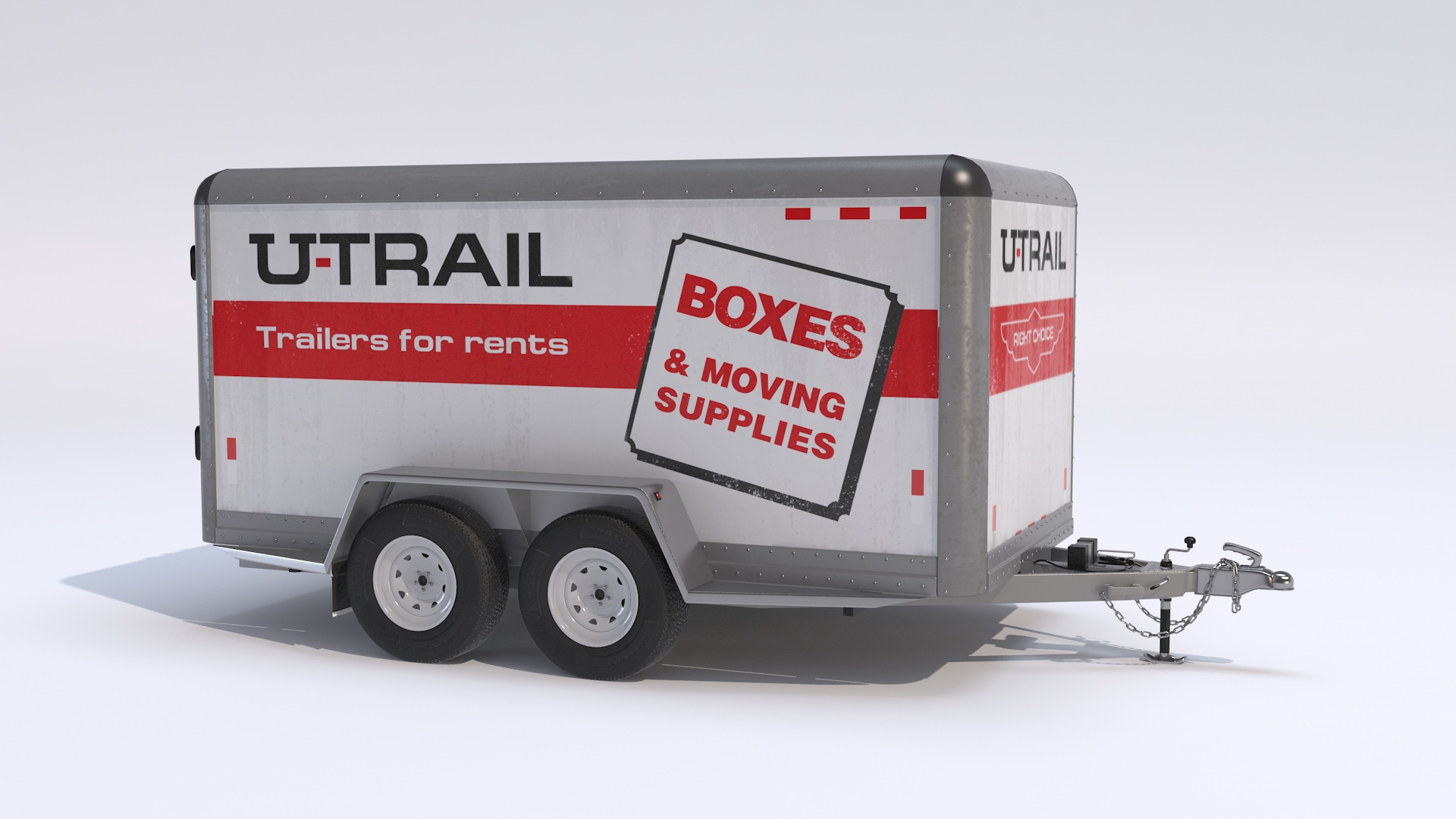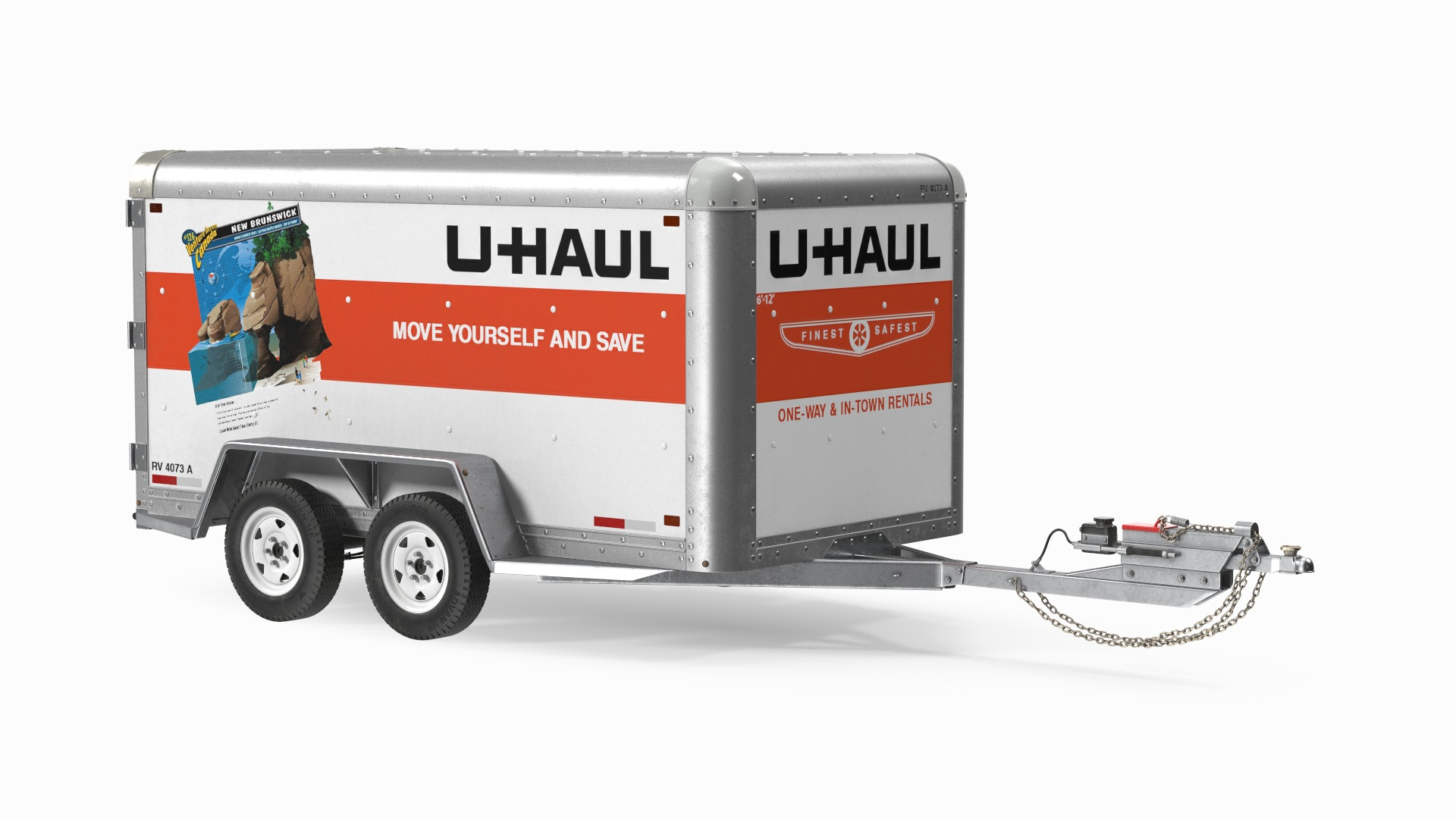U-Haul Cargo Trailer: Your Comprehensive Guide to Efficient and Secure Hauling cars.truckstrend.com
In the realm of DIY moving, personal projects, and small business logistics, the U-Haul cargo trailer stands as an unsung hero. Far more than just a metal box on wheels, it represents a versatile, cost-effective, and secure solution for transporting goods of all shapes and sizes. Whether you’re relocating across town, decluttering your home, hauling supplies for a construction project, or delivering inventory for your business, understanding the nuances of U-Haul cargo trailers can empower you to move with confidence and efficiency. This comprehensive guide will delve into every aspect of these indispensable trailers, from their types and benefits to essential safety considerations and practical rental advice.
Understanding U-Haul Cargo Trailers: The Basics of Secure Transport
U-Haul Cargo Trailer: Your Comprehensive Guide to Efficient and Secure Hauling
A U-Haul cargo trailer is an enclosed, towable unit designed to protect your belongings from the elements and secure them during transit. Unlike open utility trailers, their enclosed nature offers superior security and weather protection, making them ideal for sensitive items, furniture, electronics, and anything that needs to arrive clean and dry. They are a popular choice for individuals who prefer to use their own vehicle for towing, providing a flexible alternative to renting a full-sized moving truck.
The primary appeal of U-Haul cargo trailers lies in their blend of convenience, security, and affordability. They cater to a wide range of needs, from small apartment moves and college dorm relocations to transporting recreational gear, business equipment, or even serving as temporary storage solutions. Their widespread availability across U-Haul’s extensive network of locations further enhances their practicality, making them accessible to millions.
Types and Sizes of U-Haul Cargo Trailers: Finding Your Perfect Fit
U-Haul offers a range of enclosed cargo trailers, each designed to accommodate different hauling needs. Selecting the right size is crucial for both efficiency and safety, ensuring you have enough space without overloading your towing vehicle or paying for unused capacity. Here’s a breakdown of the available types:
-
4′ x 8′ Cargo Trailer:
- Ideal For: Small loads, studio apartment moves, college dorms, small furniture, boxes, or light hauling.
- Capacity: Approximately 142 cubic feet.
- Key Feature: Lightweight, easy to maneuver, and can be towed by many vehicles.

-
5′ x 8′ Cargo Trailer:
- Ideal For: Studio or small one-bedroom apartment moves, larger furniture pieces, appliances, or more extensive box loads.
- Capacity: Approximately 208 cubic feet.
- Key Feature: A popular mid-range option, offering a good balance of capacity and towability.

-
5′ x 10′ Cargo Trailer:
- Ideal For: One-bedroom apartment moves, larger furniture, multiple appliances, or significant equipment hauling.
- Capacity: Approximately 257 cubic feet.
- Key Feature: Provides extra length for longer items, still relatively easy to tow for capable vehicles.
-
6′ x 12′ Cargo Trailer:
- Ideal For: One to two-bedroom apartment moves, large household items, extensive equipment, or commercial use.
- Capacity: Approximately 396 cubic feet.
- Key Feature: The largest enclosed option, offering substantial space for significant hauling needs. Often requires a more robust towing vehicle.

Understanding the cubic footage and approximate dimensions helps in visualizing what each trailer can hold, preventing the common mistake of underestimating or overestimating your space requirements.
Renting a U-Haul Cargo Trailer: A Step-by-Step Guide
Renting a U-Haul cargo trailer is a straightforward process designed for convenience. Follow these steps to ensure a smooth experience:
- Assess Your Needs: Determine the size of the trailer you require based on the volume and weight of your belongings.
- Check Your Towing Vehicle: This is paramount. Verify your vehicle’s towing capacity (found in your owner’s manual or on a sticker near the driver’s door). Ensure it has a properly installed hitch receiver, a hitch ball (correct size, typically 1 7/8" or 2"), and functional wiring for trailer lights (4-flat or 7-way connector). U-Haul can assist with hitch installations if needed.
- Reserve Online: Visit the U-Haul website or use their app to reserve your trailer. Input your pickup and drop-off locations (for one-way rentals) and desired dates. You’ll receive a confirmation with pickup details.
- Pickup Day:
- Arrive Prepared: Bring your driver’s license, reservation confirmation, and the vehicle you intend to use for towing.
- Inspection: A U-Haul representative will inspect your vehicle’s hitch and wiring to ensure compatibility and safety.
- Hook-Up: They will assist you in hooking up the trailer, ensuring the hitch is properly secured, the safety chains are crossed, and the electrical connection for lights is working.
- Briefing: You’ll receive instructions on safe towing practices, loading tips, and return procedures.
- Load and Go: Load your trailer safely, distributing weight correctly (more on this below).
- Return: Return the trailer to the agreed-upon location by the due date. Ensure it’s clean and empty to avoid additional charges.
Key Considerations for Safe and Efficient Towing
Towing a trailer, regardless of size, introduces new dynamics to driving. Prioritizing safety is non-negotiable.
- Vehicle Towing Capacity is King: Never exceed your vehicle’s stated towing capacity. This includes the weight of the trailer itself plus its contents. Overloading can lead to loss of control, transmission damage, and dangerous braking issues.
- Proper Hitch and Wiring: Your hitch must be rated for the weight you’re towing, and the hitch ball must match the trailer’s coupler size. Functional trailer lights (brake lights, turn signals, running lights) are a legal requirement and crucial for visibility.
- Weight Distribution Matters: Load the trailer with approximately 60% of the weight in the front half (closer to the towing vehicle) and 40% in the rear. Heavy items should be placed low and centered over the axle. Improper weight distribution can cause dangerous "swaying" or "fishtailing."
- Secure Your Load: Use moving blankets, furniture pads, and strong tie-down straps to secure all items inside the trailer. Prevent shifting during transit, which can damage your belongings and affect the trailer’s balance.
- Pre-Trip Inspection: Before every drive, check:
- Tires: Ensure trailer tires are properly inflated (refer to U-Haul’s recommended PSI).
- Lights: Verify all trailer lights are working.
- Hitch Connection: Double-check the hitch coupling, safety chains, and breakaway cable (if equipped).
- Door Latch: Ensure the cargo door is securely latched.
- Driving Dynamics:
- Increased Braking Distance: You’ll need more time and space to stop.
- Wider Turns: Account for the trailer’s length, making wider turns to avoid curbs or obstacles.
- Reduced Speed: Drive slower than usual, especially on highways or in windy conditions.
- Lane Changes: Plan ahead and allow ample space.
- Backing Up: This can be challenging. Practice in an empty lot if possible. Turn the steering wheel in the opposite direction you want the trailer to go.
Benefits of Choosing a U-Haul Cargo Trailer
The decision to opt for a U-Haul cargo trailer comes with a host of advantages:
- Cost-Effectiveness: Often significantly cheaper than renting a moving truck, especially for smaller moves or in-town hauling, as you save on truck mileage and fuel consumption by using your own vehicle.
- Flexibility and Convenience: Use your own familiar vehicle for towing, eliminating the need to adapt to a larger truck. You can pick up and drop off at numerous locations.
- Security and Protection: The enclosed design safeguards your items from theft, dust, rain, snow, and road debris, ensuring they arrive in pristine condition.
- Versatility: Beyond traditional moves, cargo trailers are excellent for transporting construction materials, gardening supplies, business inventory, sports equipment, or even for temporary storage during home renovations.
- DIY Control: You maintain complete control over your moving schedule, loading, and transportation, empowering you to manage your move on your terms.
Potential Challenges and Solutions
While U-Haul cargo trailers offer immense utility, being aware of potential challenges and their solutions can further streamline your experience:
- Towing Anxiety: Many first-time towers feel nervous.
- Solution: Start with smaller trailers, practice in a low-traffic area, and watch U-Haul’s instructional videos. Take it slow, leave ample space, and focus on smooth maneuvers.
- Vehicle Compatibility Issues: Your vehicle might not have the correct hitch or wiring, or its towing capacity might be insufficient.
- Solution: Verify your vehicle’s specifications before reserving. U-Haul locations offer hitch installations and wiring services, but book these in advance.
- Improper Loading: Incorrect weight distribution is the leading cause of trailer sway.
- Solution: Always load heavier items first, low and centered over the axle, and towards the front. Secure everything tightly with straps to prevent shifting.
- Damage During Transit: Accidents happen, or items might shift and get damaged.
- Solution: Consider U-Haul’s optional Safemove® or Safemove Plus® coverage, which can protect the trailer from damage and provide coverage for your cargo. Always secure your items thoroughly.
- Return Logistics: For one-way rentals, ensuring the drop-off location is open and accessible can be a concern.
- Solution: Confirm drop-off hours and location specifics when reserving. U-Haul often allows after-hours drop-offs with key return procedures.
U-Haul Cargo Trailer Estimated Daily In-Town Rental Rates
Please note that these prices are estimates for daily in-town rentals and can vary based on location, availability, demand, and whether it’s a one-way or in-town rental. Always check the U-Haul website for the most accurate and current pricing for your specific needs.
| Trailer Size | Approximate Interior Dimensions (L x W x H) | Cubic Feet | Payload Capacity (lbs) | Estimated Daily In-Town Rate* |
|---|---|---|---|---|
| 4′ x 8′ | 8′ x 4′ x 4′ | 142 cu. ft | 1,600 lbs | $14.95 – $19.95 |
| 5′ x 8′ | 8′ x 5′ x 4.5′ | 208 cu. ft | 1,800 lbs | $19.95 – $24.95 |
| 5′ x 10′ | 10′ x 5′ x 5′ | 257 cu. ft | 1,650 lbs | $29.95 – $34.95 |
| 6′ x 12′ | 12′ x 6′ x 5.5′ | 396 cu. ft | 2,400 lbs | $39.95 – $49.95 |
*Prices are subject to change and vary by location and demand. One-way rentals are typically higher.
Frequently Asked Questions (FAQ)
Q1: Can I tow a U-Haul cargo trailer with any vehicle?
A1: No. Your vehicle must meet U-Haul’s towing requirements, including having the proper hitch, working lights, and sufficient towing capacity. Always check your vehicle’s owner’s manual for its specific towing limits.
Q2: Do I need special insurance to tow a U-Haul cargo trailer?
A2: Your personal auto insurance policy might offer some coverage, but it’s essential to check with your provider. U-Haul also offers supplementary coverage options like Safemove® and Safemove Plus®, which provide damage waiver for the trailer and coverage for your cargo.
Q3: How do I properly load a U-Haul cargo trailer?
A3: Place heavier items towards the front of the trailer (about 60% of the weight) and centered over the axle. Distribute weight evenly from side to side. Secure all items with tie-down straps to prevent shifting during transit.
Q4: Can I rent a U-Haul cargo trailer for a one-way trip?
A4: Yes, U-Haul offers one-way rentals for cargo trailers, allowing you to pick up at one location and drop off at another. These rentals typically cost more than in-town rentals.
Q5: Do I need a special driver’s license to tow a U-Haul cargo trailer?
A5: In most U.S. states and for the sizes offered by U-Haul, a standard driver’s license is sufficient. However, always verify local regulations in your state or province.
Q6: Are U-Haul cargo trailers waterproof?
A6: U-Haul cargo trailers are designed to be weather-resistant and protect your belongings from rain, snow, and road spray. While highly effective, like any trailer, they are not 100% waterproof in extreme conditions or if submerged.
Q7: What equipment do I need on my vehicle to tow a U-Haul cargo trailer?
A7: You will need a hitch receiver, a hitch ball (usually 1 7/8" or 2" depending on the trailer size), and a working electrical connection (typically a 4-flat or 7-way connector) for the trailer’s lights.
Conclusion
The U-Haul cargo trailer is an invaluable asset for anyone needing reliable, secure, and cost-effective hauling solutions. By offering a range of sizes, clear rental procedures, and a strong emphasis on safety, U-Haul empowers individuals and businesses to tackle their moving and transport challenges with confidence. From the smallest box to bulky furniture, these enclosed trailers provide peace of mind, protecting your valuables from the elements and ensuring their safe arrival. With careful planning, adherence to safety guidelines, and an understanding of the options available, your next hauling project with a U-Haul cargo trailer will be a smooth and successful endeavor.




